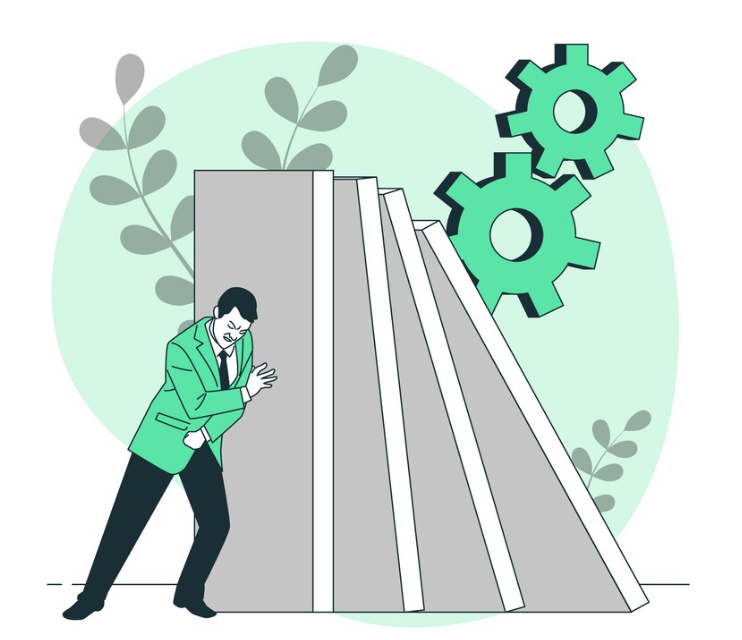Resilience—the ability to bounce back from adversity—is undeniably a cornerstone of success in the modern workplace. However, achieving resilience isn't solely about possessing a strong mental and emotional foundation. Intricately woven into the fabric of resilience are a set of soft skills that, when cultivated, can significantly enhance an individual's ability to navigate the ever-evolving challenges of professional life. Let's delve into these soft skills from an employee-centric perspective, understanding their profound impact on resilience.
1. Emotional Intelligence (EQ)
EQ is the ability to recognize, understand, and manage our emotions while also being sensitive to the emotions of others. High EQ individuals can navigate challenging situations with empathy, ensuring that their reactions are both thoughtful and measured.
Employee Insight: Regularly engage in self-reflection and be open to feedback about your emotional responses. Over time, enhancing EQ can significantly bolster resilience, aiding in effectively processing setbacks and maintaining harmonious work relationships.
2. Adaptability
The ability to adjust to new conditions and changes is paramount in a fast-paced work environment. Adaptability ensures that you are not just reacting to changes but proactively engaging with them.
Employee Insight: Embrace change as an opportunity for growth. By viewing change as a learning curve, you fortify your resilience, transforming potential stressors into avenues for advancement.
3. Active Listening
Active listening isn't just about hearing words but understanding and interpreting them. It aids in grasping the crux of challenges, facilitating better problem-solving.
Employee Insight: When faced with challenges, take a step back and truly listen—to colleagues, superiors, or clients. This approach can reveal insights and solutions, enhancing resilience by ensuring you're well-equipped to address issues.
4. Growth Mindset
Championed by psychologist Carol Dweck, a growth mindset is the belief that abilities can be developed. Individuals with this mindset see failures not as definitive endpoints but as feedback.
Employee Insight: Foster a culture of continuous learning. By viewing setbacks as lessons, you inherently enhance resilience, always evolving and bettering your professional self.
5. Problem-Solving
The ability to approach challenges methodically and find solutions can significantly reduce stress, making the road to resilience smoother.
Employee Insight: Engage in brainstorming sessions, seek diverse perspectives, and be open to unconventional solutions. A proactive problem-solving approach can drastically reduce the emotional toll of workplace challenges.
6. Communication
Transparent and effective communication can preempt many challenges. It ensures that expectations are aligned, reducing the potential for misunderstandings.
Employee Insight: Regularly check in with team members and superiors. By ensuring you're on the same page, you mitigate potential issues, enhancing overall resilience.
7. Empathy
Empathy—the ability to understand and share the feelings of another—is crucial. It fosters stronger, more supportive work relationships, creating an environment where challenges are faced collectively.
Employee Insight: Make an effort to understand colleagues' perspectives, especially during disagreements. A supportive work environment, where empathy is at the forefront, inherently boosts individual and collective resilience.
8. Time Management
Managing time effectively ensures that work pressures don't escalate into overwhelming stress. By being organized and prioritizing tasks, you can navigate high-pressure situations with ease.
Employee Insight: Make use of digital tools and planners to schedule tasks. An organized approach not only boosts productivity but also enhances resilience by ensuring work pressures remain manageable.
9. Conflict Resolution
The ability to address and resolve conflicts ensures that workplace challenges are addressed head-on, preventing them from escalating.
Employee Insight: Encourage open dialogue and be receptive to feedback. Addressing conflicts promptly and effectively can prevent them from becoming major stressors, thereby safeguarding resilience.
10. Positivity
A positive outlook can transform the perception of challenges. By focusing on potential solutions rather than the scale of the problem, you can navigate setbacks more effectively.
Employee Insight: Engage in positive self-talk and surround yourself with optimistic colleagues. A positive environment can significantly enhance resilience, offering a brighter perspective even in challenging times.
In conclusion, resilience, while often viewed as a standalone trait, is intricately connected to a host of soft skills. By fostering these skills, employees can significantly enhance their resilience, ensuring they're not only prepared to face professional challenges but are also equipped to transform them into opportunities. In the dynamic tapestry of the modern workplace, let these soft skills be the threads that fortify your resilience, allowing you to weave a narrative of continuous growth and success.





